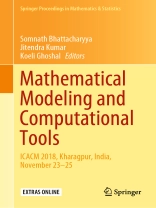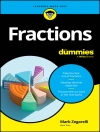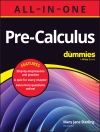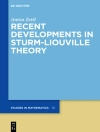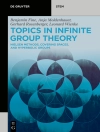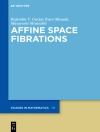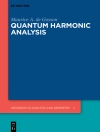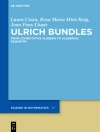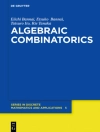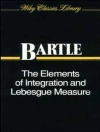This book features original research papers presented at the International Conference on Computational and Applied Mathematics, held at the Indian Institute of Technology Kharagpur, India during November 23–25, 2018. This book covers various topics under applied mathematics, ranging from modeling of fluid flow, numerical techniques to physical problems, electrokinetic transport phenomenon, graph theory and optimization, stochastic modelling and machine learning. It introduces the mathematical modeling of complicated scientific problems, discusses micro- and nanoscale transport phenomena, recent development in sophisticated numerical algorithms with applications, and gives an in-depth analysis of complicated real-world problems. With contributions from internationally acclaimed academic researchers and experienced practitioners and covering interdisciplinary applications, this book is a valuable resource for researchers and students in fields of mathematics, statistics, engineering, and health care.
Tabela de Conteúdo
Part I: Electrokinetic Transport Phenomenon, P. P. Gopmandal, S. K. Maurya, S. Bhattacharyya, An overview on analytic expressions for electrophoretic mobility of rigid colloids.- S. Bera, S. Bhattacharyya, Solute transport and mixing efficiency on electrokinetic flow in a heterogeneous microchannel.- S. S. Barman and S. Bhattacharyya, Effect of temperature dependent electrostatic parameters on electroosmotic flow with hydrophobic patches.- S. Jawalkar, O. Ojjela and D. Pradhan, Influence of thermophoresis and Brownian motion on MHD mixed convective chemically reacting couple stress fluid flow in porous medium between parallel plates.- Part II Modelling of Fluid Flow, V. kumar, V. K. Srivastav and A. R. Paul, Computational fluid dynamics studies of effect of blockage ratio on drag.- S. Mohan, S. Debnath, J. Kumar and K. Ghoshal, Distribution of two-dimensional unsteady sediment concentration in an open channel flow.- P. Jain and K. Ghoshal, Solution to one dimensional diffusion equation with concentration dependent mixing length.- A. Karthik, K. Sashank and T. S. L. Radhika, A study on the effect of various fluid, flow and mechanical parameters on the flow of Newtonian fluid in an expanding and contracting pipe.- B. Kumar and G. S. Seth, Unsteady stagnation point nanofluid flow over a stretching sheet with thermal radiation.- Y. D. Chashechkin, New universal classification of fluid flows structural components.- T. K. Sengupta, S. Sengupta and P. Sundaram, Dynamical system theory of flow instability using the impulse and the frequency response approaches.- L. Tlau and S. Ontela, Entropy generation for a mixed convection nanofluid flow in an inclined channel filled with porous medium with thermal radiation.- Part III: Numerical Techniques to Physical Problems, S. Dutta and S. Bhattacharyya, Mixed convection in a lid-driven inclined cavity with discrete heater on the lower wall.- P. Santra and G. S. Mahapatra, Discrete prey predator model with square root functional response under imprecise biological parameters.- M. Adak, Comparison of explicit and implicit finite difference schemes on diffusion equation.- H. Bansu and S. Kumar, Numerical solution of space and time fractional advection diffusion equation by meshless approach.- A. Kumar, V. Kumar, M. umar, A. Kumar, V. K. Srivastav, R. Pandey and M. Kumar, Numerical studies of blockage in human heart.- J. S. Chordiya and R. V. Sharma, Numerical analysis of partition-clustering in a high temperature gradient region for suppression of heat transfer in porous enclosure.- N. Allwayin, D. G. Dilip, S. Panda and J. Mathew, Real time numerical scheme for crater geometry simulation in micro-EDM process.- M. Mallick and S. Sundar, Existence, bifurcation and multiplicity results for a class of n x n p-Laplacian system.- D. Ghosh and J. Kumar, Uniqueness and asymptotic behavior of the solutions to a singular coagulation-fragmentation equation.- N. S. Bondareva and M. A. Sheremet, Natural convection melting of PCM: Numerical simulation techniques and applications.- S. Koley, Hypersingular Integral Equation Approach for Hydroelastic Analysis of a Submerged Elastic Plate.- J. Baroi and S. Anand Sahu, Dispersion of Bleustein- Gulyaev (BG) waves in smart composite structure.- Part IV Graph Theory and Optimization: A. Doley and A. Bharali, The inverse sum indeg index for R-sum of graphs.- D. Roy, Neural network based fuzzy multi objective optimisation for efficiency evaluation.- D. K. Mohanty, R. K. Jana and M. P. Biswal, Multi-choice chance constrained programming Problems using genetic algorithm.- A. Mahanta, A. Bharali and J. Buragohain, The ISI index of edge-semitotal and total graphs.- J. Buragohain, A. Bharali and A. Mahanta, Four new operations of graphs related to tensor product and Zagerb indices.- S. S. Negi, S. Abbas and M. Malik, Some oscillatory results for nonlinear equation on time scales.- S. Gupta and L. N. Das, Optimal investment decision model based on simplex algorithm with variable optimal value evaluation process.- Part V: Stochastic Modelling and Machine Learning (Computer), T. Maitra and S. Bhattacharya, Asymptotic theory of Bayes factor in stochastic differential equations with increasing number of individuals.- D. Kavitha and V. Radha, Text detection based on text shape feature analysis with intelligent grouping in natural scene images.- S. Seal, Anthrophilia* algorithm.- S. Pasari, Stochastic modeling of earthquake interevent counts (natural times) in northwest Himalaya and adjoining regions.- D. Baruah and A. Bharali, Analysis of three major airline networks of India: A complex network approach contents entries found.
Sobre o autor
Somnath Bhattacharyya is Professor at the Department of Mathematics, Indian Institute of Technology Kharagpur, India obtained his Ph.D. in Computational Fluid Dynamics from the Indian Institute of Sciencesand has held several visiting positions at various institutes, including the University of Leeds, UK; University College London, UK; Ohio State University, USA; Max Planck Institute for Marine Microbiology, Germany; Karlsruhe Institute of Technology, Germany; University of Stuttgart, Germany. He is a Fellow of the National Academy of Sciences, India and has completed several research projects sponsored by the DST and CSIR.He has received several awards and fellowships for research collaborations in the USA, UK and Germany, such as the DST BOYSCAST Fellowship; EPSRC, UK Fellowship; Max Planck Fellowship, Germany; and DARPA, USA. His research interests include computational fluid dynamics, micro- and nanofluidics modeling and numerical analysis, and he has published more than 110 papers in highly reputed international journals.
Jitendra Kumar is Associate Professor at the Department of Mathematics, Indian Institute of Technology Kharagpur, India. Prior to that, he was associated with the Otto von Guericke University Magdeburg, where he earned his Ph.D in 2006, and the Fraunhofer Institute for Industrial Mathematics, both in Germany. He has received several fellowships including DAAD, DFG and Alexander von Humboldt. His research interests include particle technology, numerical solutions of population balances in particulate systems, mathematical modeling and simulation of various engineering processes and development and analysis of numerical techniques, and has published over 70 articles in various journals of repute.Koeli Ghoshal is Associate Professor at the Department of Mathematics, Indian Institute of Technology Kharagpur, India. She has worked as a research associate, visiting scientist and research fellow in the Physics and Applied Mathematics Unit of Indian Statistical Institute, Kolkata, India. She has received several national fellowships and awards including the prestigious SERC Fast Track Fellowship awarded by DST, India, and G. M. Nawathe Best Paper Award Awardat the HYDRO 2002 Conference. Her main research interest is mathematical and probabilistic investigations of sediment transport in open channel turbulent flow and she has published more than 45 peer-reviewed articles in several reputed journals.
